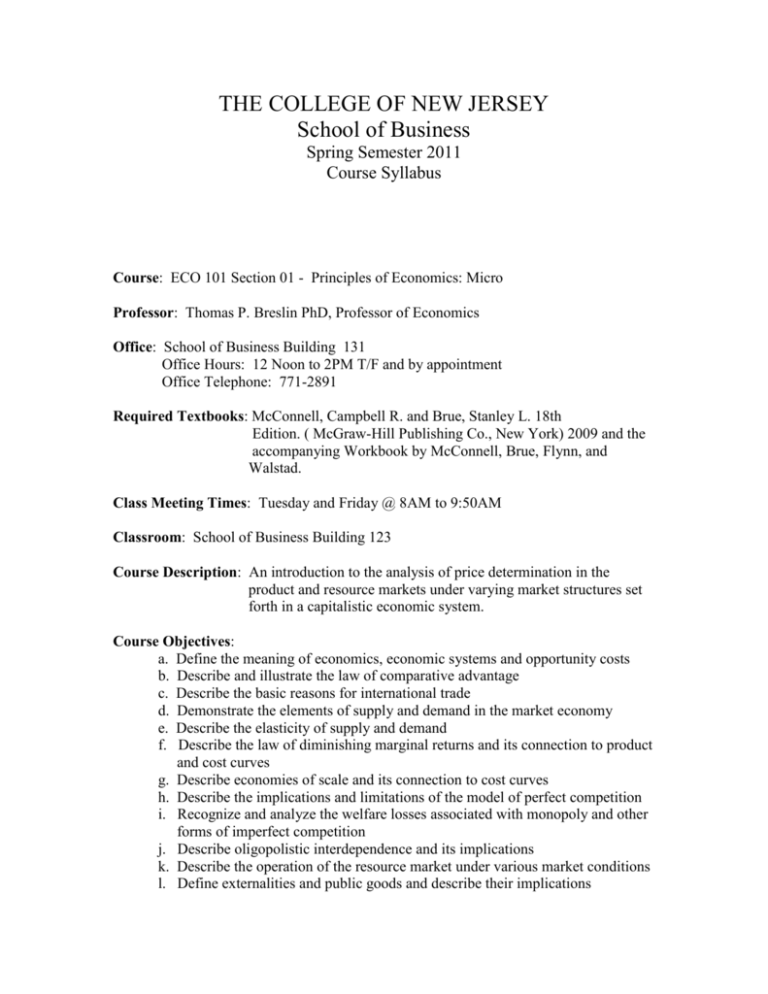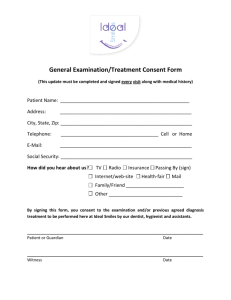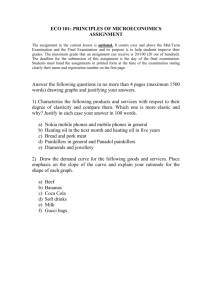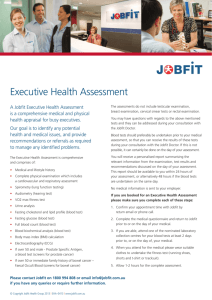Principles of Microeconomics - School of Business
advertisement

THE COLLEGE OF NEW JERSEY School of Business Spring Semester 2011 Course Syllabus Course: ECO 101 Section 01 - Principles of Economics: Micro Professor: Thomas P. Breslin PhD, Professor of Economics Office: School of Business Building 131 Office Hours: 12 Noon to 2PM T/F and by appointment Office Telephone: 771-2891 Required Textbooks: McConnell, Campbell R. and Brue, Stanley L. 18th Edition. ( McGraw-Hill Publishing Co., New York) 2009 and the accompanying Workbook by McConnell, Brue, Flynn, and Walstad. Class Meeting Times: Tuesday and Friday @ 8AM to 9:50AM Classroom: School of Business Building 123 Course Description: An introduction to the analysis of price determination in the product and resource markets under varying market structures set forth in a capitalistic economic system. Course Objectives: a. Define the meaning of economics, economic systems and opportunity costs b. Describe and illustrate the law of comparative advantage c. Describe the basic reasons for international trade d. Demonstrate the elements of supply and demand in the market economy e. Describe the elasticity of supply and demand f. Describe the law of diminishing marginal returns and its connection to product and cost curves g. Describe economies of scale and its connection to cost curves h. Describe the implications and limitations of the model of perfect competition i. Recognize and analyze the welfare losses associated with monopoly and other forms of imperfect competition j. Describe oligopolistic interdependence and its implications k. Describe the operation of the resource market under various market conditions l. Define externalities and public goods and describe their implications Grading: Three major examinations will be the primary basis for measuring performance in the course. Also it should be mentioned that in the past I have doubled your highest grade in the calculation of your final grade. However, in order to be eligible for this you may not be absent for more than one class during the entire semester. There are absolutely no exceptions to this policy. Unannounced quizzes may also be given at any time and will be weighted according. The examinations will be administered on the date listed below. Failure to take the examinations on the scheduled date will result in a zero being recorded for that/those examination/s. Students can only be excused from taking the examination at the scheduled time by presenting an approved medical excuse to the instructor. Students who are excused for such medical reasons will have the opportunity to take the examination/s. The date for the make-up examination will be given on at 12:30PM, April 13, 2011 in room 106 in the School of Business Building. Examination Schedule: Examination # 1 Examination # 2 Examination # 3 February 18, 2011 March 18, 2011 Refer to Final Exam Schedule Final Grade Determination: Examination # 1 = 33% = 100 Points Examination # 2 = 33% = 100 Points Examination # 3 = 34% = 100 Points Grading Scale: Minimum Points Necessary For Each Grade Three Exams 94 - 100 = A 282 90 - 93 = A270 86 - 89 = B+ 258 82 - 85 = B 246 78 - 81 = B234 74 - 77 = C+ 222 70 - 73 = C 210 66 - 69 = C198 62 - 65 = D+ 186 58 - 61 = D 174 Below 58 = F Doubling Highest Grade 376 360 344 328 312 296 280 264 248 232 Attendance Policy: All students are expected to attend every class. Leaving before the scheduled ending of class and being tardy will not be tolerated. 2 Schedule of Topics Chapter/s (Campbell and Brue) Topics 1 Limits, Alternatives, and Choices 2 The Market System and the Circular Flow 3 Demand, Supply, and Market Equilibrium 6 Extensions of Demand and Supply Analysis 7 Consumer Behavior and Utility Maximization 4 The US Economy: Private and Public Sectors 5 The United States in the Global Economy 8 Costs of Production 9 Pure Competition 10 Pure Monopoly 11 Monopolistic and Oligopoly 18 Antitrust, Regulation, and Industrial Policy 12 Demand for Resources 13 Wage Determination 14 Rent, Interest, and Profits 3





